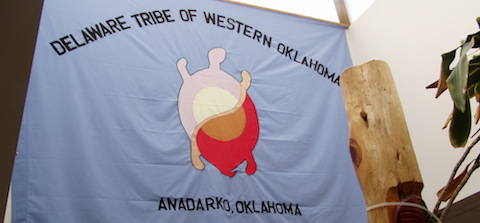
It’s been quite a while since I researched Native American stuff, but recently I happened to get back into some of that and discovered that the Cherokee Nation of Oklahoma has elected a new principal chief since last I checked, Bill John Baker (he was elected in 2011, so that shows how long I’ve been out of the loop!). When I looked him up, my first thought was “He doesn’t look very Cherokee!” And come to find out, as far as his ethnic background goes, he is actually 1/32nd Cherokee.
This led me to a little more research on blood quantum requirements in Indian tribes—basically the requirement that a person have a certain percentage of ancestry from that tribe in order to have tribal citizenship. It’s certainly an interesting concept, especially since it really wouldn’t fly in other nations—just think, what if a European country introduced some blood quantum law that says you must be a certain percentage white in order to be a citizen? Cries of “Racism!” would be everywhere.
But Indian tribes are a different ballgame, or so it seems. It happens to be the case, however, that the Cherokee Nation of Oklahoma does not have blood quantum requirements—all that is required is that you be able to trace your family tree back to someone on the Dawes Roll, a roster of Cherokees made by the US government in the 19th century. Thus, it doesn’t matter what percentage Cherokee you are; if one of your ancestors was a registered Cherokee, then you can join the tribe. Other tribes have chosen to require a blood quantum to have citizenship—for example, the United Keetoowah Band of Cherokees (also in Oklahoma) requires 1/4 Cherokee blood in order to be a citizen of their nation.
But it brings up an interesting question about identity. If you watch videos of principal chief Bill John Baker, despite his pronouncing “Osiyo” and “Wado” with a distinct drawl, you will see that he very much identifies as Cherokee. So where does identity come from? Why doesn’t he identify with his 31/32nds of European heritage as much? Granted, I don’t know his story. Maybe he has always been involved in the Cherokee Nation along with the parts of his family who share that heritage. Or maybe he was just doing some genealogy research one day and discovered that a distant relative of his was Cherokee, and decided to become a Cherokee citizen. Either way, the Cherokee people have chosen him as principal chief, so they apparently accept him.
What about children born in bicultural families? Should they go around saying “I’m half ____”, or is it possible for them to fully identify with one or both sides of their heritage? Personally, I would argue the latter. I know someone who, you might say, is half American and half Italian—but he is quite capable of functioning in both worlds. He doesn’t have any problem telling people “I’m Italian,” because he is—regardless of his blood quantum ratio. He speaks Italian, he lived part of his life there, and he feels a part of that culture. At the same time, he has spent a lot of time in the US, and certainly can function as a part of our culture as well.
Physical attributes and genealogical descent don’t necessarily define your identity. Take, for example, the Kaw Nation of Oklahoma. I read a story a while back about the passing of the last full-blood Kaw—which means that the only Kaws left are those of mixed heritage. Does that mean that the Kaw Nation no longer exists? Of course not. Even though there are no more people who are 100% ethnically Kaw, that heritage is a part of them, and they continue to keep the Kaw identity and culture alive.
But I think it’s also possible to take this notion of choosing your identity a bit too far. I can’t help but think of Americans who will proudly tell you, in their finest Southern accent, “I’m Irish!” Well, if you’re Irish I’m a potato, because you sure seem like an American to me! And I get what they’re saying—they have ancestors who came to America from Ireland, and they have that “Irish blood” in them. But I would venture to say that a child in Ireland born to immigrants from India is more Irish than you are, since they live there and have assimilated into that culture.
That’s not to say that you couldn’t choose to move to Ireland, get to know the people and the culture, and become a part of it. But stating your identity as Irish when you really have very little connection to that people is kind of ridiculous in my opinion. It would be like me saying that I am French, just because my ancestors came from France in the 1700s. I can speak some French, but I will always be much more American (or Texan, as I prefer to see it!) than French, since my family has lived here for many generations.
Oh, and by the way, there’s a slim chance that one of my great great great grandmothers was a Menominee Indian… wonder if I could get citizenship with that tribe? Hm… no such luck—I just checked, and the Menominee Tribe has a blood quantum requirement of 1/4th!